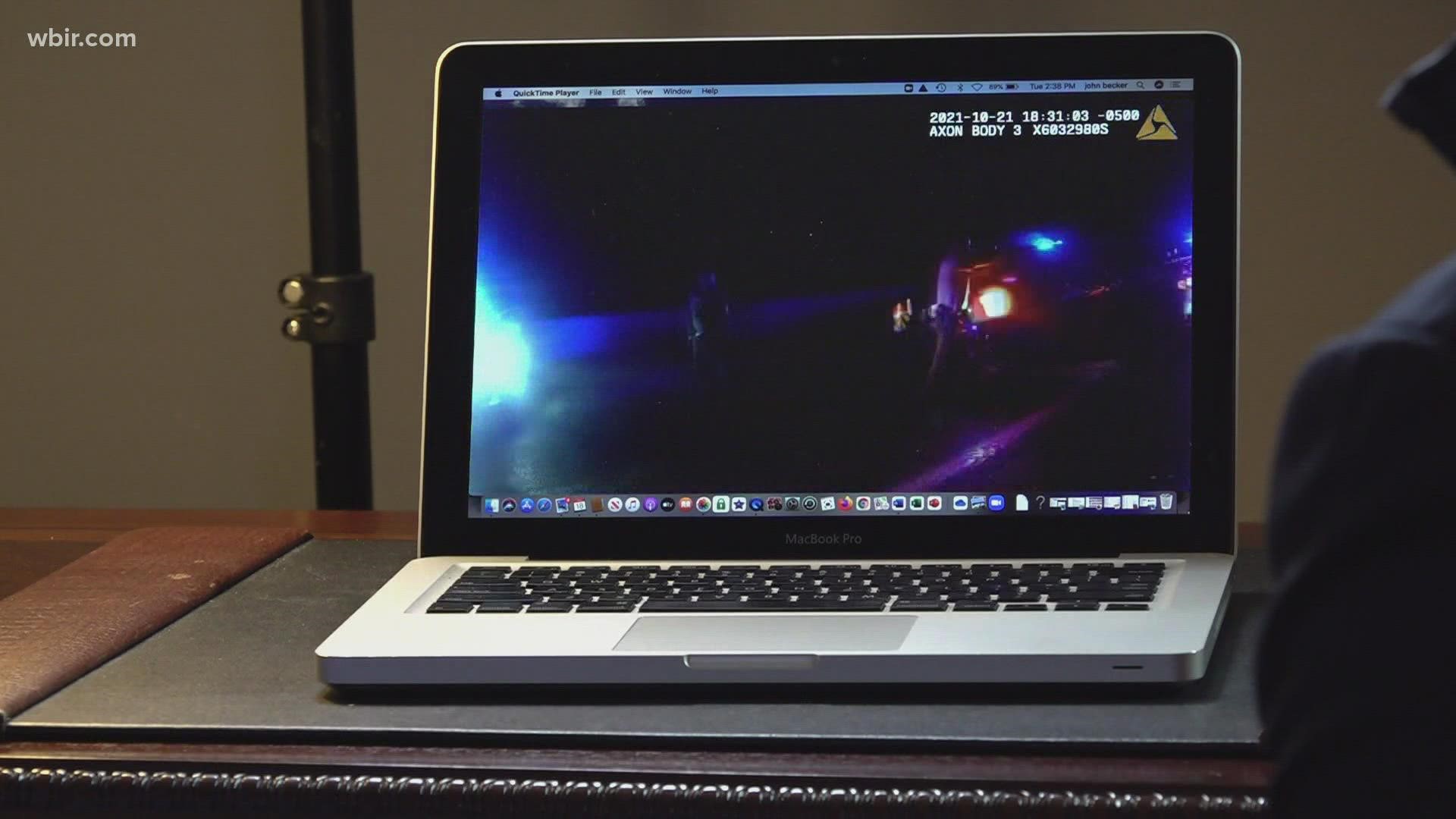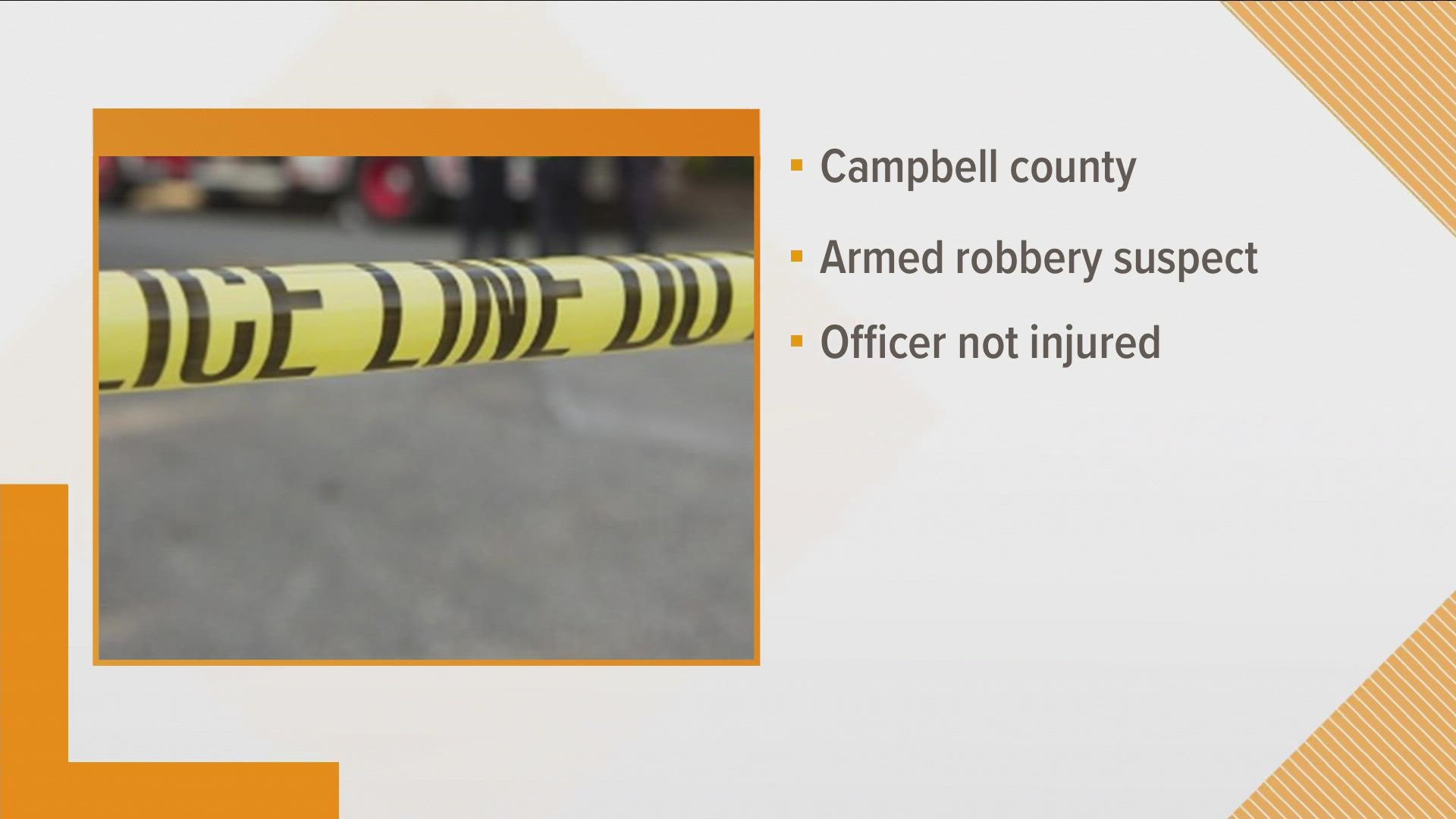CARYVILLE, Tenn. — In a matter of seconds, Tennessee Highway Patrol Sgt. Rex Bailey learned three things while standing on Interstate 75 in Campbell County.
There'd just been a robbery at a Jacksboro, Tenn., pharmacy. The suspect was heading Bailey's way on Interstate 75 northbound in a silver Subaru. And the robber had a gun.
Even as Bailey processed the information the night of Oct. 21, 2021, from dispatchers and colleagues, suspect Michael Hilton, 34, of Sanford, N.C., was barreling in the dark through traffic on the busy interstate stretch.
And then Bailey and Caryville Police Detective John Minor saw it: Hilton's car slamming into motorists, headlights on and heading toward Bailey on the pavement.
The trooper, flashlight in one hand and service weapon in the other, fired straight into the passing Subaru's windshield. He hit Hilton twice in the head. The car smacked into his cruiser, and Hilton slumped over, mortally wounded.
With increasing frequency, law officers in Tennessee and across the country are becoming involved in confrontations that lead to injury and even death.
In 2020, the Tennessee Bureau of Investigation was asked to review 46 officer-involved shootings in the state. In 2021, the number was 55 -- or more than one a week.
So far this year it's looked at 24, also more than one a week, TBI figures show.
Most officers in the state typically are cleared and their actions deemed justified -- because the suspect posed a clear threat to the officer or the public. In a few instances, investigations show the officer used excessive force.
In Bailey's case, District Attorney General Jared Effler found after weeks of TBI fact-gathering that Bailey's killing of Hilton was justified: The suspect drove toward the trooper, giving him little choice but to fire.
TBI investigative documents and Bailey's bodycam footage, obtained by WBIR, reveal the moments leading up to Bailey's decision to shoot, how other officers joined him in firing more than 25 shots at the Subaru and how Bailey responded at the scene once he'd shot Hilton.
They also show how police reacted when they realized there was someone else in the car with the North Carolina man -- a distraught woman who turned out to be his wife. In the hail of bullets aimed at the driver, Emily Hilton escaped injury.
Veteran cop and former Knox County Sheriff Tim Hutchison said it's easy for people who don't wear a badge to second guess an officer's use of force. But if an officer's life is threatened, he has to act, he said.
"They're armed, you know they're armed," Hutchison said. "At that point, they have to be stopped. You have to assume that something bad is gonna happen to someone if you don't stop them."
Law officers train for such critical moments. Until they actually face it, they never really know how they're going to react.
"I had to shoot, I had no choice," Bailey told a colleague at the scene that October night. "He was coming right at me."

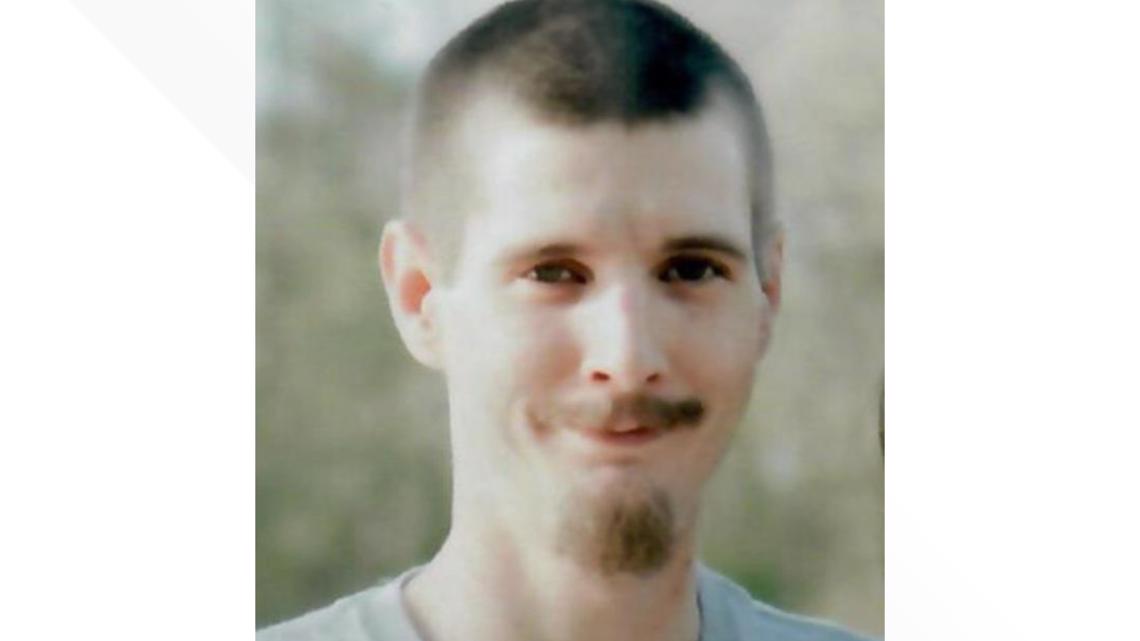
THE SILVER SUBARU
At about 7:23 p.m. Oct. 21, 2021, authorities got a call about a robbery from Jamie Chapman, loss prevention officer at the Walmart on Appalachian Highway in Jacksboro.
The suspect had pulled out a handgun, screaming and demanding "Oxys and money," Chapman said.
That man was Michael Hilton, authorities said. Waiting outside in a Subaru was his wife Emily, authorities allege.
The robber wore a plaid hoodie, a white face mask and blue jeans. The pharmacist gave him a decoy pill bottle.
Chapman followed the suspect from a distance and watched as he got into a silver Subaru.
Sgt. Joseph Weaver of the Campbell County Sheriff's Office was among those who responded to the store. Weaver said the fleeing Subaru WRX nearly t-boned him as it left the parking lot.
Deputies began a chase that they reported reached speeds of more than 120 mph, records show. Hilton's Subaru headed out onto I-75.
Weaver and another deputy tried to catch the fleeing car but lost contact and became stuck in traffic. Weaver called off his pursuit because of rainy weather and traffic conditions, including a slowly moving line of vehicles passing through a section of I-75 with limited lane access because of road construction.

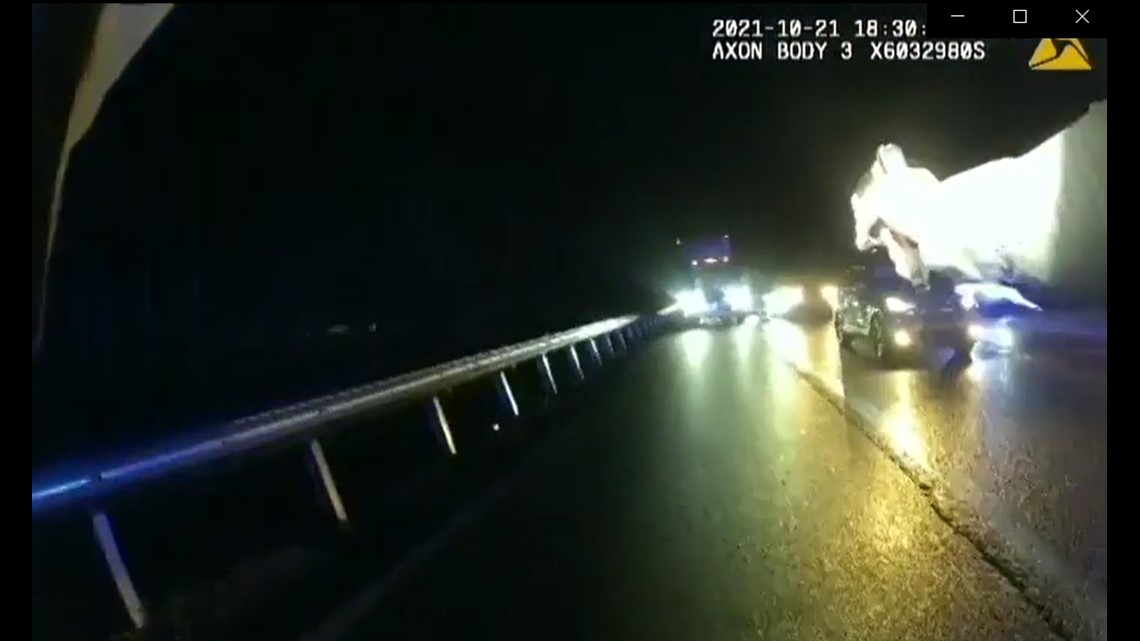
Hearing radio traffic about the chase, Detective Minor got on I-75. He passed Weaver and Deputy Timothy Powers, steering through the construction zone.
As he drove through the zone, he could look over and see the silver Subaru. It was about 150 yards ahead of Weaver and Powers, records show.
Minor stopped and got out near the suspect vehicle, giving commands to Hilton. He thought he saw Hilton holding a gun in his right hand as it rested on the steering wheel.
Hilton pushed his way through traffic, and Minor, Weaver and Powers swung through the construction zone to try to get ahead of the Subaru.
Minor approached Sgt. Bailey, shouting from his vehicle window that Hilton had a gun and was right behind him. Bailey was trying to assist a disabled 18-wheeler.
"10-4," Bailey said calmly.
Within seconds, the Subaru swerved up the I-75 lane approaching Bailey's position. The trooper shouted for him to stop and then began firing as the car came near him, passed by and continued another 50 yards or so until it struck Bailey's parked THP cruiser.
Other officers joined in firing, aiming for the driver's side from the rear.
"I shot right through there! He's done," one officer exclaimed.
Hilton suffered several gunshot wounds; the fatal shots, the investigation would later show, came from Bailey.
Officers declared "Shots fired!" to dispatch and requested an ambulance, but the North Carolina suspect was too badly wounded. His body made involuntary gasping noises in an effort to get oxygen.
Authorities realized Hilton had a passenger with him, a woman. Guns drawn, they shouted repeatedly for her to show her hands and to step carefully out of the car.
They demanded to know if the suspect was still breathing, if he was talking.

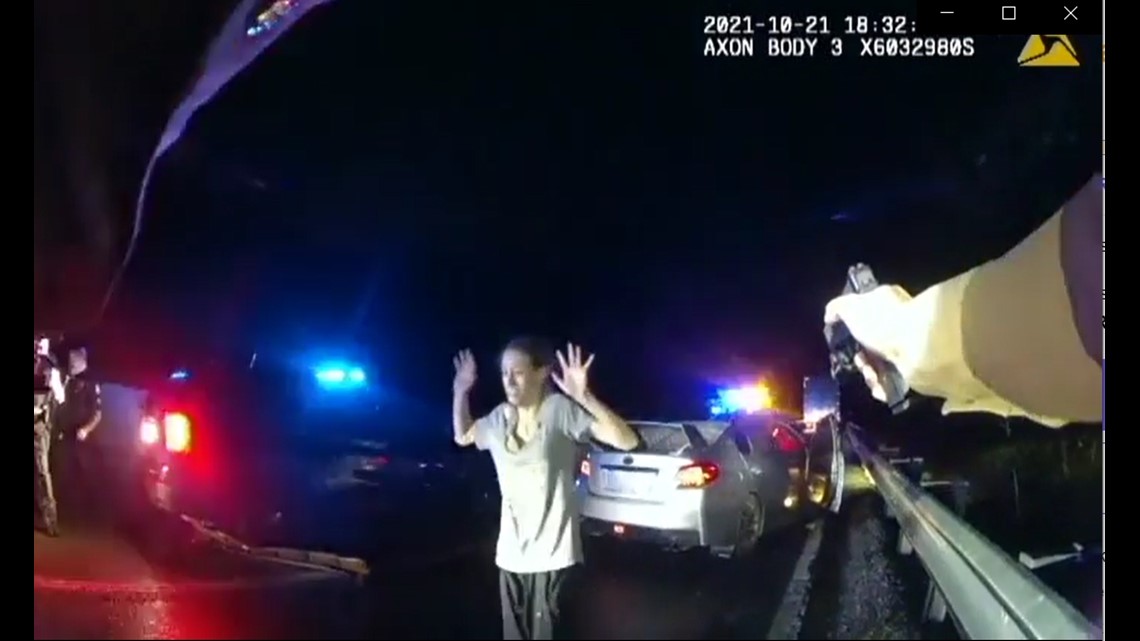
"I don't know, I don't know!" the frightened woman said, hands up as she stepped barefooted in the darkness toward the law officers.
Troopers and deputies circled around the shot-out Subaru repeatedly, checking on Hilton. Bailey declared he could see Hilton had a pill in his mouth.
"Dadgummit," Bailey said quietly to himself a couple times. "Son of a gun."
The sergeant began checking on motorists and tractor-trailer drivers hunkered down on I-75 near the shooting scene. Some had suffered vehicle damage when Hilton hit them; others were just shaken.
Commanders ordered Bailey to set up a perimeter and ensure no one left the scene.
"He about ran me over," he told one truck driver.
Another woman that he checked on informed him she was from out of town, traveled a lot and that she had a gun in the backseat of her vehicle in her backpack.
"You're safe now," he replied.

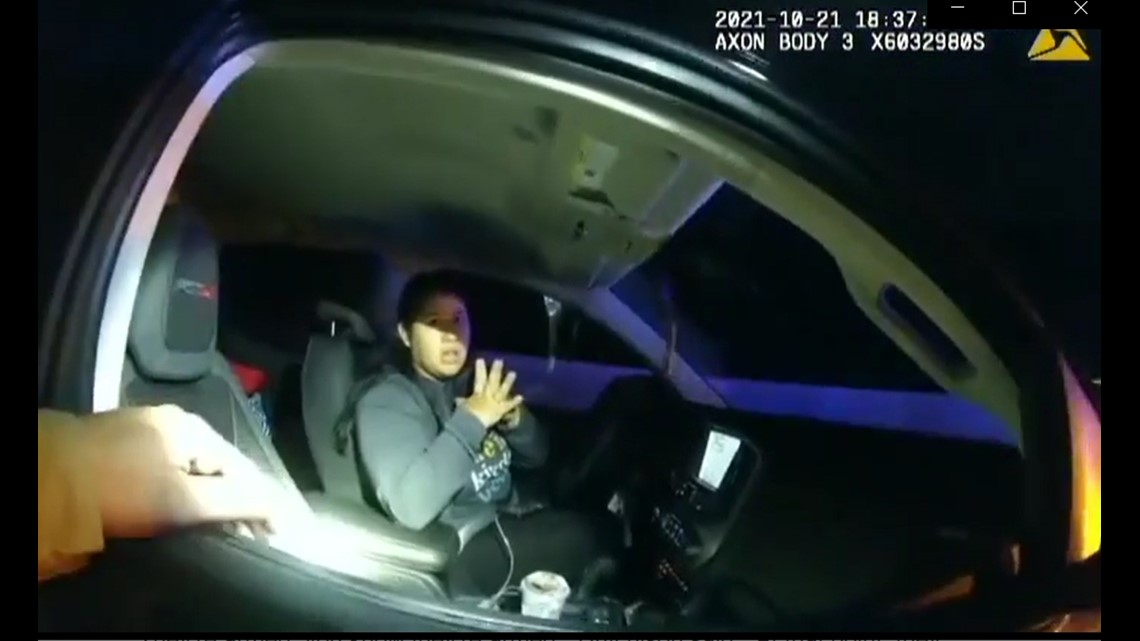
"IT REALLY DOESN'T MATTER HOW MANY TIMES YOU SHOOT"
Police don't get paid for what they do, observed longtime retired Florida law officer Mark Baughman, who now serves as an expert in the use of force. Rather, Baughman told WBIR, they get paid for what they might have to do.
"And in this case, it was what he (Bailey) had to do," Baughman said.
Still, DA Effler, whose district includes Campbell County, called for the Tennessee Bureau of Investigation to conduct an independent investigation because the trooper -- and others -- had used force against Hilton. Reviewing officer-involved shootings is a significant and frequent part of what the TBI does across the state.

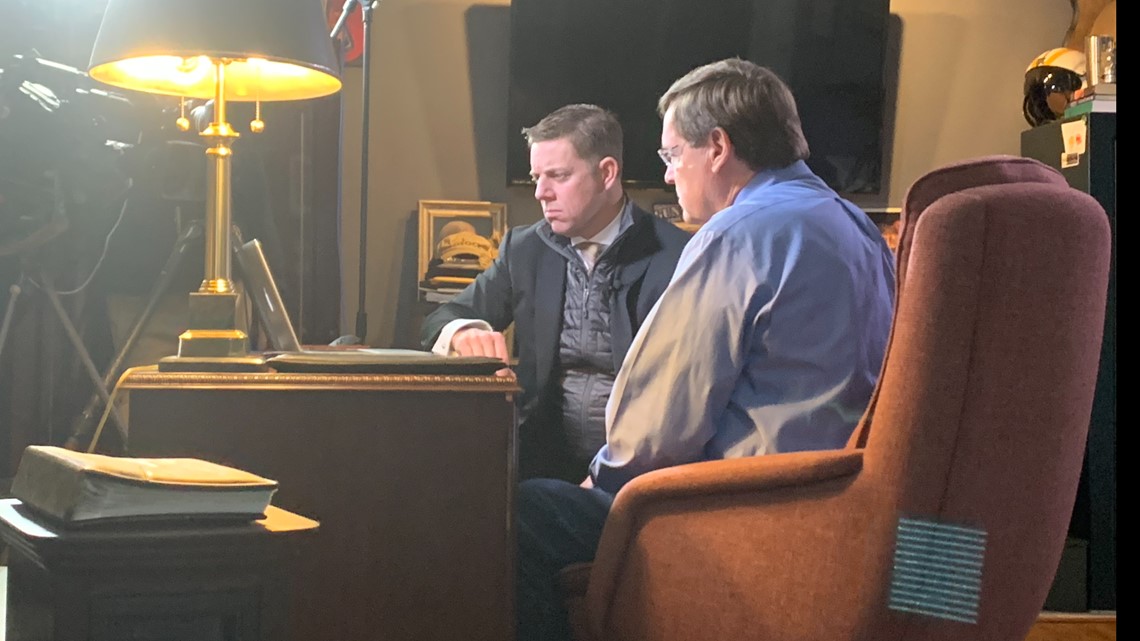
It was up to the TBI to interview everyone involved, count the bullets, conduct the ballistics, review the video and present their facts to Effler.
In December, the district attorney determined no law officer would face prosecution in Hilton's death. The use of force used against Hilton was proper and justified, the DA found.
Could a less harmful means of force have been used against Hilton?
"As it pertains to disabling the Subaru in other ways without lethal force, disabling vehicles by shooting either the tires or engines is theatrics saved for televised entertainment," Effler observed in his December summary.
"Law enforcement, whether a TBI agent or a road deputy are not trained in these theatrics, nor should they be."
The DA continued: "Had the Subaru not been traveling in a reckless and attempted high-speed manner, Sergeant Bailey as well as the other officers, could have utilized some less lethal techniques, but in this case, Michael Hilton dictated the time, place and manner of the confrontation."

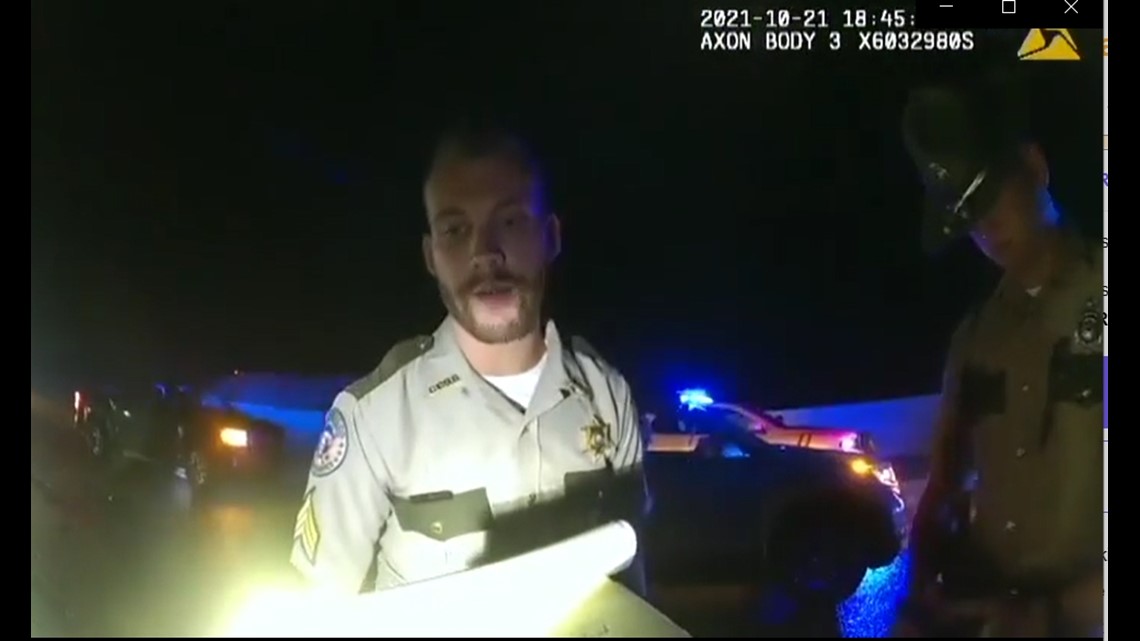
Quentin Williams, a former FBI agent and former federal prosecutor, said once an officer decides to use deadly force the objective is to eliminate the threat by whatever means.
"Once you surmise that it's important to pull that trigger, it really doesn't matter how many times you shoot as long as you're justified in pulling that trigger that one time," he said.
Twenty-seven shell casings were found around the Subaru, most if not all certainly fired by Bailey, Weaver and Minor, records obtained by 10News found.
It's easy to second guess the number of gunshots fired that night, Hutchison said, unless you're the one facing the threat or potential threat of being run down by a fleeing vehicle.
The former sheriff said in a situation such as the I-75 shooting, law enforcement had to think not only about themselves but the potential threat from Hilton and the Subaru to others -- to anyone in his path that night.

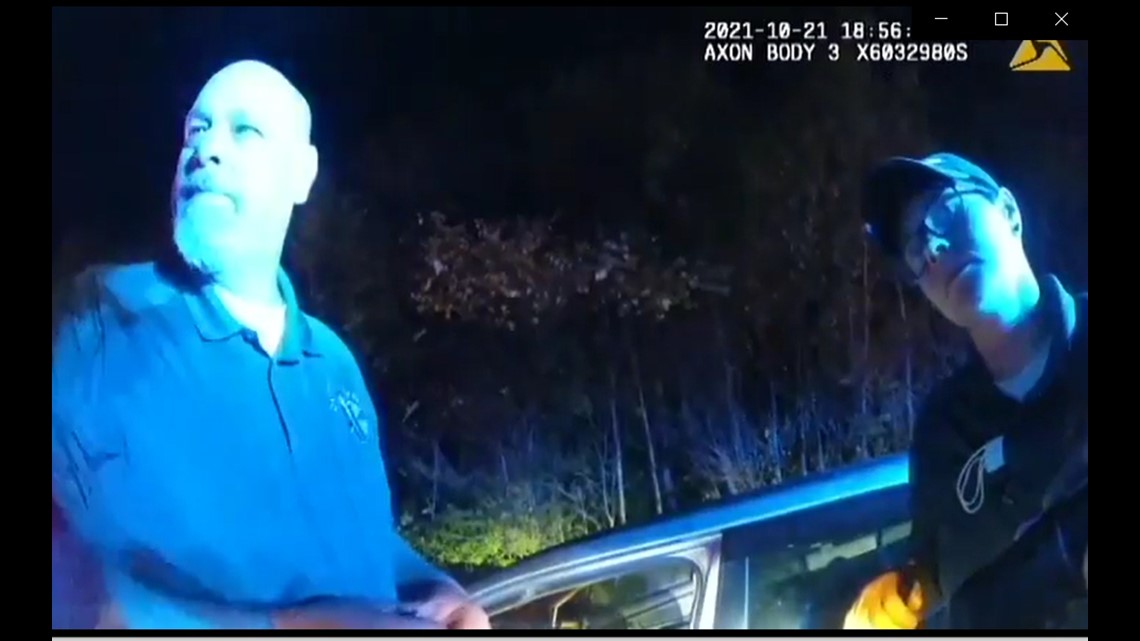
"Serious pursuits are very dangerous because you're gonna end up killing innocent individuals if they're in a really bad traffic accident on down the road," Hutchison said.
Inside the vehicle, after the killing, authorities found numerous needles and two drink cans with a green substance on the bottom, records obtained by WBIR showed. Testing showed it was methamphetamine.
After authorities pulled Hilton from the vehicle, they found a teal green Walther PK380 pistol, considered ideal for concealed carry, in Hilton's right back pocket.
"There was a total of 9 live rounds in the gun including one in the chamber," the TBI investigation found.

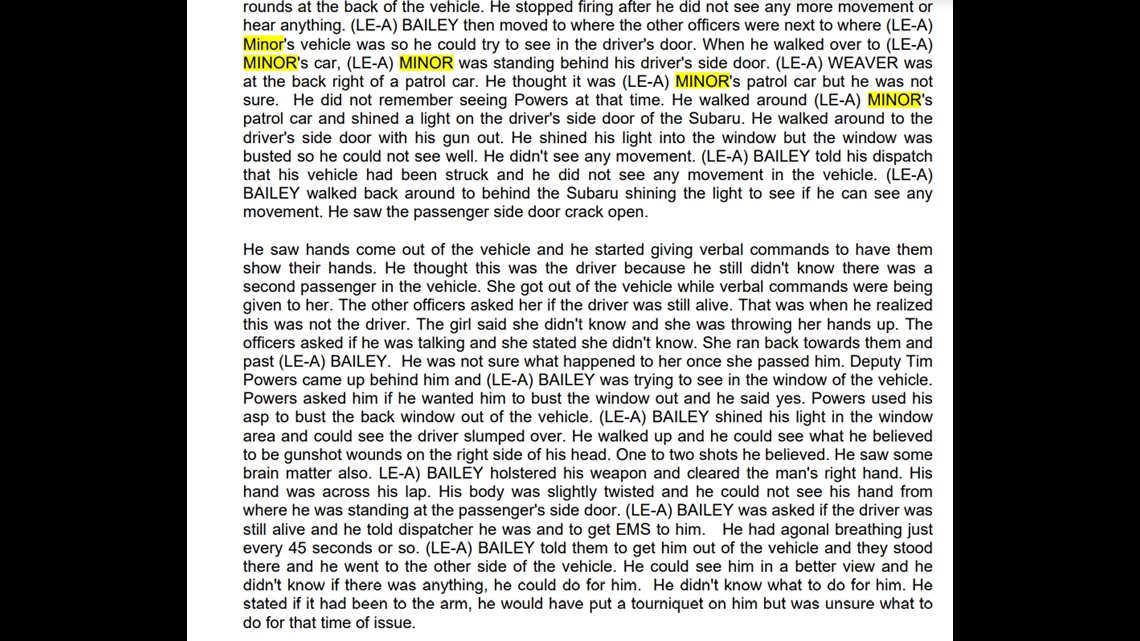
An autopsy at the Regional Forensic Center showed Michael Hilton had suffered two gunshot wounds to the head. Both bullets were fired by Bailey, forensics found.
For all the shooting, Emily Hilton emerged from the vehicle scared but unscathed.
"We're pretty good about where we aim at them," Bailey told the out-of-town female traveler that night. "But I just wanted to make sure that you didn't have any bullets in your vehicle."
The TBI redacted the contents of Emily Hilton's interview with investigators after the shooting.
According to Effler's summary of the TBI review, Michael Hilton appeared intent on getting pills from a pharmacy that Oct. 21 night in Jacksboro but a clerk spotted the pistol in his pocket and declined to cooperate. He then left.
Emily Hilton told TBI agents that her husband then walked into the Walmart and came back out to tell her he was going to rob it.
Emily Hilton told agents the gun was hers.
Michael Hilton told his wife she was to call the pharmacy, give them his description, and that if they did not give him what he wanted then he would start shooting, according to reports. Emily Hilton called as instructed, Effler's summary found.
Michael Hilton went back inside and returned shortly afterward, Emily Hilton told agents.
The wife recalled that Hilton shoved pills in her mouth. The next thing she remembered was the Subaru crashing into the trooper's car and hearing loud bangs.

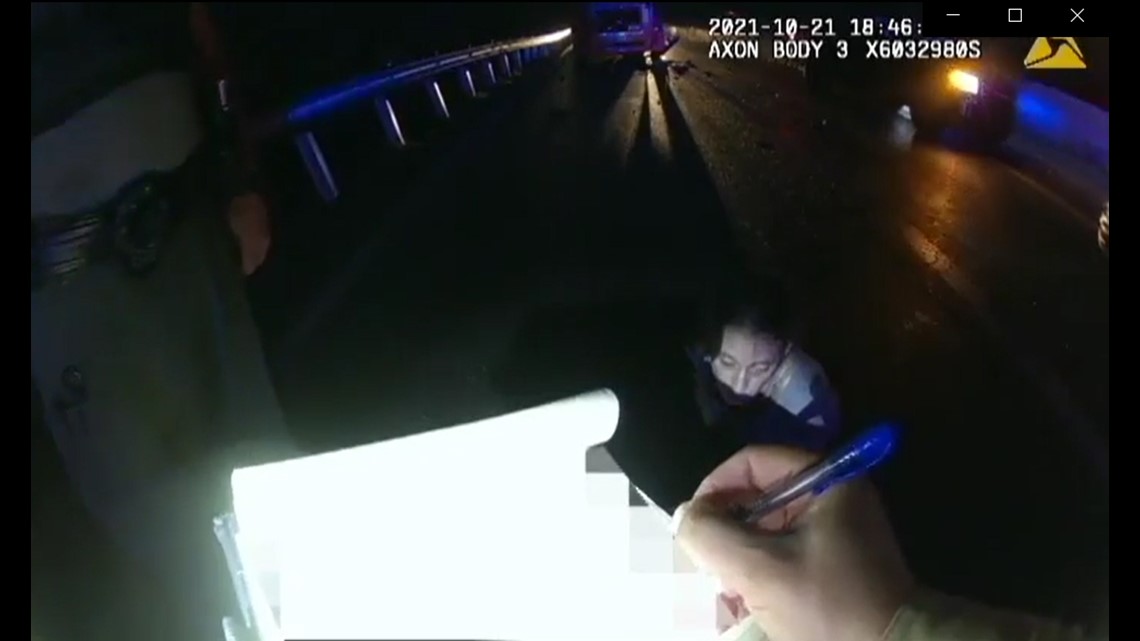
She's pleaded guilty in the case and is awaiting sentencing later this year in Campbell County, according to Effler.
Sgt. Bailey, according to THP, is back on the road.

